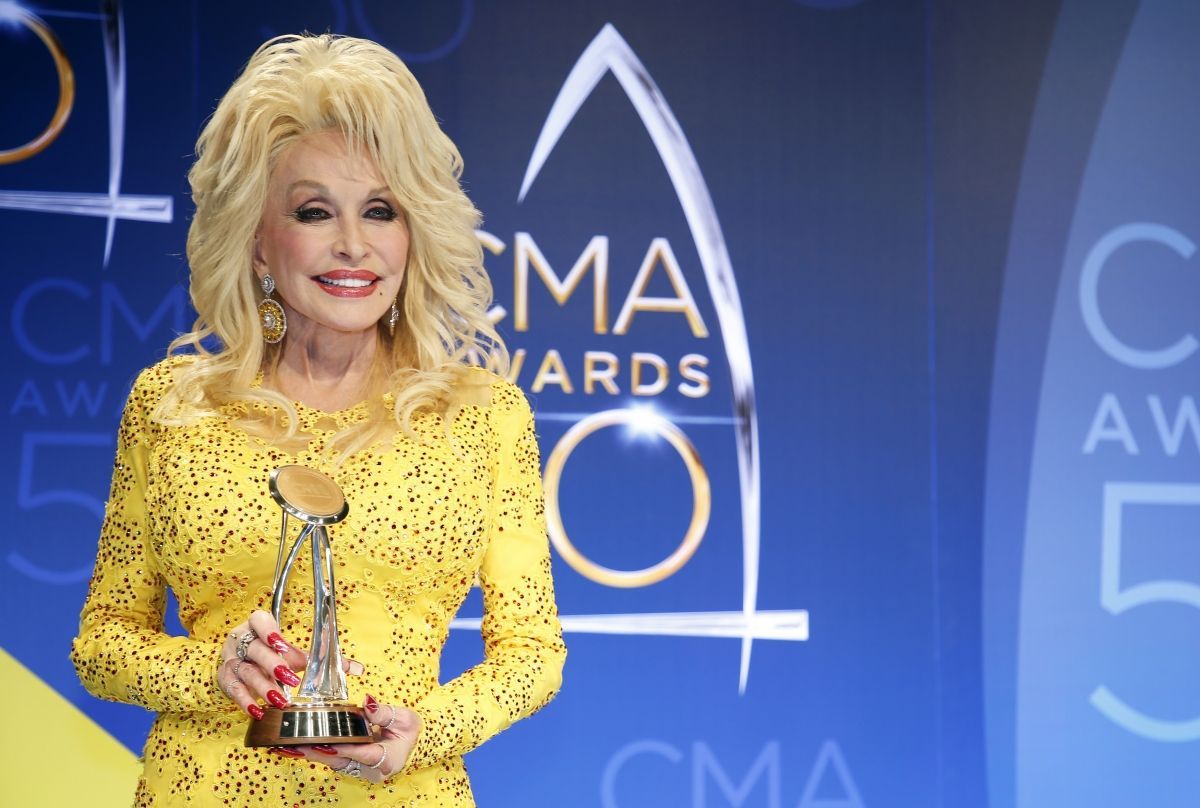How Dolly Parton became the only universally beloved celebrity of 2020

A few minutes every morning is all you need.
Stay up to date on the world's Headlines and Human Stories. It's fun, it's factual, it's fluff-free.
One celebrity not only rode out 2020 without losing the esteem of her fans but managed to engender even more universal adoration.
It has been a rough year for celebrities and the goodwill they usually enjoy. 2020 saw Tom Hanks and Oprah – generally understood to be two of the most beloved figures in America – accused of being pedophiles by a virulent conspiracy theory.
It was also the year in which a well-meaning but mawkish celebrity cover of John Lennon’s “Imagine” earned A-listers like Gal Gadot, Will Ferrell and Mark Ruffalo jeers and harsh mockery.
Maybe this animosity is due to the COVID-19 pandemic and the fact that movie theaters have been closed and live concerts haven’t been an option. Or perhaps it’s just a side effect of an increasingly divided nation in which people can seemingly no longer agree on even the most mundane topics.
Whatever the reasons, one celebrity not only rode out 2020 without losing the esteem of her fans but managed to engender even more universal adoration. That celebrity is the country music legend, Golden Globe-nominated actress and amusement park owner, Dolly Parton.
Even after Parton uncharacteristically stepped into the political sphere earlier this year in an interview with Billboard Magazine by proclaiming “Of course Black lives matter” in defense of the BLM movement, she appeared impervious to backlash. So, how exactly did Dolly wind up at the end of 2020 as one of the few universally beloved celebrities?
Dolly Parton funded a COVID vaccine
Ever since COVID-19 began running rampant through the United States (and the rest of the world), people have been waiting for a vaccine that would theoretically allow a return to normalcy. As citizens of the world have faced lockdowns, unemployment and spikes in mental health issues and domestic abuse, the hope of a safe and thoroughly tested coronavirus vaccine has been a sustaining promise.
In November, the world received two doses of good news when both the American pharmaceutical giant Pfizer and the upstart biotechnology company Moderna announced their vaccines were more than 90% effective in preventing COVID-19. The announcements gave hope that much of the population could be vaccinated by early to mid-2021.
In the wake of Moderna’s announcement, social media posts appeared that claimed Parton had helped fund their research. As with many “facts” on social media, this one seemed like a prime candidate for “fake news.” As it turns out, though, it was true: USA Today fact checked the claims and found it to be accurate.
In April, Parton tweeted that she was donating US$1 million to coronavirus research being done at Vanderbilt. Moderna wasn’t specifically singled out for support and, in fact, Parton didn’t know she had donated to Moderna specifically until it was reported that “the Dolly Parton COVID-19 Research Fund” was listed as a supporter in the vaccine’s preliminary report.
Dolly Parton’s literacy initiative
Parton’s donation to Vanderbilt was hardly her first major charitable action of 2020. In late March, as the pandemic was worsening in the US, she announced she was launching “Goodnight with Dolly,” a 10-week streaming video series in which she read popular children’s books at 7 p.m. (EST).
Her announcement of the series explained that it would “focus on comforting and reassuring children during the shelter-in-place mandates.” The project’s goal was to “provide a welcomed distraction during a time of unrest and also inspire a love of reading and books in the hearts of the children who see them.”
The video series was an offshoot of Dolly Parton’s Imagination Library, which she founded in 1995. The Imagination Library initially began as a book program to provide free books to young children in her home county of Sevier County, Tennessee. It has since grown into one of the largest youth literacy programs in the world, largely due to Parton’s efforts and financial support.
The Imagination Library, which donates over one million books a month, officially surpassed 100 million donated books in 2018.
A documentary about the program, “The Library That Dolly Built,” was originally scheduled to be released on April 2, 2020, but was postponed due to the pandemic. The film ended up having its world premiere online via Facebook on December 9.
Ending 2020 on a high note
This year had its share of tough news for Parton, as well, including the loss of her longtime friend and duet partner, Kenny Rogers, in March. Nonetheless, the country singer who has made a career by writing empowering songs has continued to be a source of inspiration and entertainment for her fans in 2020.
On November 22, Netflix released a new Parton-starring film, “Dolly Parton’s Christmas on The Square,” which includes 14 new songs from the artist.
It was reported in December that while filming the movie, Parton saved the life of her 9-year-old co-star, Talia Hill. Hill was walking to set when a vehicle barreled down on her. The young girl was suddenly pulled out of the way and, when she looked up, saw it was Parton who had saved her.
Dolly Parton’s Netflix Christmas film followed her 2019 Netflix collaboration, Dolly Parton’s Heartstrings, an anthology series in which Parton’s songs are reinterpreted as narrative episodes.
If that weren’t enough Dolly content for her fans, in October she also released her first holiday-themed album in 30 years, “A Holly Dolly Christmas,” which quickly reached the top of the Billboard charts.
Despite the hardships of 2020, it’s been a good year for Parton and her fans, which, increasingly, appears to be most Americans. It’s hard to find anyone who has a bad word to say about her, not even the conspiracy-obsessed QAnon.
While neither Tom Hanks nor Oprah can do anything about what people who are untied from reality say about them, it’s noteworthy that the only conspiracy theory Parton has been a part of this year is the one that says her husband of 54 years, Carl Dean, isn’t real – he is.
Have a tip or story? Get in touch with our reporters at tips@themilsource.com




Comments ()